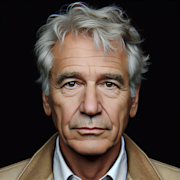Bonnie and Clyde (1967)

In 1967, director Arthur Penn brought to life one of the most iconic and influential films in cinematic history: “Bonnie and Clyde”. This crime drama tells the story of the notorious outlaws Bonnie Parker and Clyde Barrow, who captivated the American public during the Great Depression with their daring bank robberies and notorious exploits. The film stars Warren Beatty and Faye Dunaway in the titular roles, and features an all-star supporting cast. Let’s take a closer look at this classic film and explore why it remains a standout in the annals of Hollywood history.
The Plot
The film follows the true story of Bonnie Parker, a bored and disillusioned waitress, and Clyde Barrow, a small-time crook and ex-convict, as they embark on a crime spree across the central United States in the 1930s. The couple recruits a motley crew of accomplices as they rob banks, evade law enforcement, and become media darlings. As their notoriety grows, so does the danger, leading to a violent and tragic end.
The Cast
Warren Beatty and Faye Dunaway deliver unforgettable performances as the charismatic and doomed lovers. Beatty captures Clyde’s mix of charm and ruthlessness, while Dunaway embodies Bonnie’s conflicted emotions and fierce loyalty. The chemistry between the two stars crackles on screen, making their characters’ romantic bond all the more poignant. Supporting performances from Gene Hackman, Estelle Parsons, and Michael J. Pollard round out the cast and add depth to the film’s ensemble.
The Style
“Bonnie and Clyde” is known for its groundbreaking cinematography, which blends gritty realism with stylized visuals. Cinematographer Burnett Guffey captures the dusty landscapes of the American South with a docudrama feel, while director Arthur Penn infuses the film with dynamic editing and innovative camera angles. The film’s violence is shocking and graphic for its time, with bursts of brutal action punctuating the quieter moments of intimacy and reflection.
The Legacy
“Bonnie and Clyde” was a critical and commercial success upon its release, earning multiple Oscar nominations and solidifying its status as a classic of the New Hollywood era. The film’s impact on American cinema cannot be overstated, influencing a generation of filmmakers with its blend of style, substance, and social commentary. Its ending, a balletic ballet of bullets set to the mournful strains of banjo music, remains one of the most iconic moments in film history.
Conclusion
In conclusion, “Bonnie and Clyde” is a timeless classic that continues to resonate with audiences today. Its blend of romance, violence, and social commentary make it a powerful and enduring work of art. Warren Beatty and Faye Dunaway’s performances are iconic, and the film’s stylish visuals set a new standard for cinematic storytelling. Whether you’re a fan of crime dramas, historical epics, or just great filmmaking in general, “Bonnie and Clyde” is a must-see for any movie lover.

Desmond van der Walt
Journalist
More From Classics Authority Movies

Movie
Toy Story 3 (2010)

Movie
Father of the Zombies: Remembering George A. Romeros Classic Creations

Movie
Young Frankenstein (1974)

Movie
Classic Cinema's Unseen Gems: Hidden Treasures Worth Discovering

Movie
The Art of Adaptation: Classic Novels That Transcend the Screen

Movie
The Lives of Others (2006)





